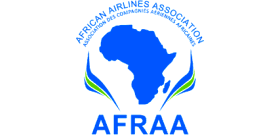 Airport taxes: Lusaka, Luanda, Casablanca, Conakry and Tunis ar the Top 5 most expensive airports
Airport taxes: Lusaka, Luanda, Casablanca, Conakry and Tunis ar the Top 5 most expensive airports
The African air transport industry is promising. Unfortunately, it faces a complex operating environment that slows or even inhibits its progress. Chief among these is the multitude of airport charges that stifle African airlines.
The most expensive airports in Africa in terms of airport taxes are now known. The list was unveiled on Wednesday 2 June 2021 by the African Airlines Association (AFRAA) which released its 2020 annual report.
The list shows that Kenneth Kaunda Airport in Lusaka is the most expensive on the continent. It is followed, in order, by Luanda, Casablanca, Conakry and Tunis international airports.
To arrive at this result, AFRAA considered 36 African airports with annual traffic of more than 500,000 passengers per year. The methodology and criteria were applied to the "most popular" Boeing 737 aircraft in the region.
Based on the geographical breakdown, Douala and Malabo are the most expensive airports in Central Africa. While Conakry is second in West Africa to Sal International Airport in Cape Verde. In East Africa, the Khartoum hub dominates the table.
Conversely, Seychelles International Airport (Mahé) is the most attractive for airlines with the lowest airport charges on the continent. Algiers, Mauritius, Nairobi and Gaborone complete the table in order.
According to Nowel Ngala, commercial director of Asky and chairman of AFRAA's aeropolitical committee, this plethora of taxes stifles the industry and affects the competitiveness of African carriers. "Since the independence of most sub-Saharan African countries, more than 47 airlines have come and gone with a maximum life span of five years," he says. "Imposing such taxes, fees and charges, especially when the air transport sector has no return on investment, only discourages passenger traffic and inhibits the ability of the air transport sector to drive economic development to its full potential. For him, a thorough review of the sector "should be carried out at the national level - states being sovereign in matters of taxation - to restructure the entire aviation sector by involving all stakeholders, placing the sector under a different financial and economic regime, outside of public finance and control, outside of public administrative considerations because of its specificity, sensitivity, complexity, need for care and its fundamental contribution to the socio-economic development of nations and the continent as a whole. "
